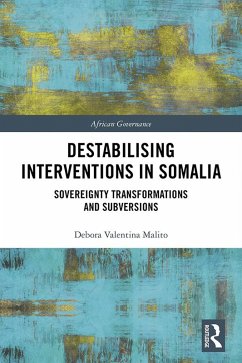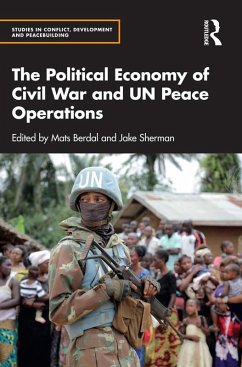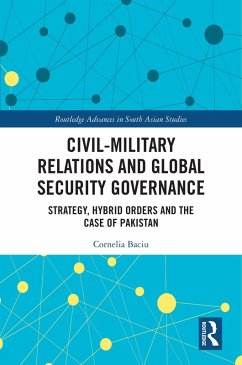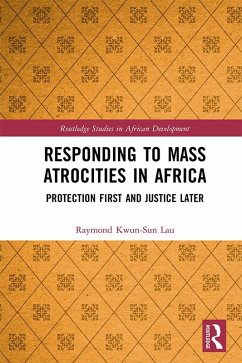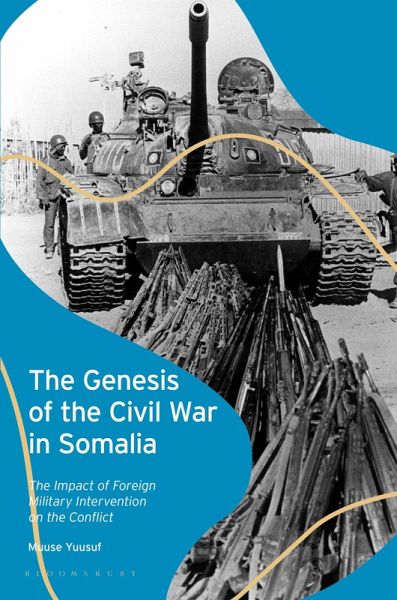
The Genesis of the Civil War in Somalia (eBook, PDF)
The Impact of Foreign Military Intervention on the Conflict
Versandkostenfrei!
Sofort per Download lieferbar
24,95 €
inkl. MwSt.
Weitere Ausgaben:

PAYBACK Punkte
12 °P sammeln!
This study explores the genesis of the civil war in Somalia by analysing the defeat of Somalia in the 1977 Ogaden war, asserting that this defeat, which was prompted by the intervention of the USSR, was a turning point which unleashed long term socio-political forces that led to the collapse of the central government of the country. Muuse Yuusuf analyses the history of the Somali civil war, from 1977 to the present, and the role played by various actors in the conflict such as local clans, warlords and foreign powers, and examines the present day by-products of the war, such as religious extre...
This study explores the genesis of the civil war in Somalia by analysing the defeat of Somalia in the 1977 Ogaden war, asserting that this defeat, which was prompted by the intervention of the USSR, was a turning point which unleashed long term socio-political forces that led to the collapse of the central government of the country. Muuse Yuusuf analyses the history of the Somali civil war, from 1977 to the present, and the role played by various actors in the conflict such as local clans, warlords and foreign powers, and examines the present day by-products of the war, such as religious extremism. Crucially, Yuusuf looks beyond the mainstream explanation for the conflict - that of rival clans fighting over resources. By recognising the impact of foreign military interventions in Somalia, from superpower rivalry during the cold war to the war-on-terror, on the initiation and perpetuation of the Somali conflict, the book attempts to identify foreign military intervention as a new paradigm in the discourse around it.




